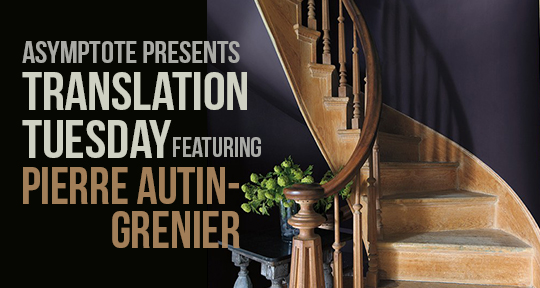Uber was once the most valued startup in the world and is used in over 700 cities. In Voci da Uber: Confessioni a motore (Voices From Uber: Motor Confessions), Mucchi Editore, 2019, Maria Anna Mariani performs the experiment of steering conversations with Uber drivers toward revealing intimate details of their lives—toward confession. These confessions are then written into a narrative. Her writing articulates the nuances of communication in the way that only the best of dramas can otherwise capture. This is perhaps the by-product of the oscillation between small talk and confession, where the positions of speaker and listener change so fast one only has time to recalibrate after the fact. I was drawn to the subtle tensions and evasions that contour the openings of contact, empathy, and understanding in such a dynamic terrain of communication. Here, Maria Anna Mariani talks about the process of writing the book and the unique space of Uber that allows for confession.
—Maya Nguen, March 2020
What is a repetition: JOHN
Route: Streeterville-home
Time: 38 minutes
Traffic: tricky
Car: gray Hyundai Elantra
Average rating: 4.95Select the material with an eye to variety and alternating themes, discard if there’s already a similar story and cut any nationality that appears twice. This is what I’d decided on when I began writing these pages. Structural constraint number one: avoid repetition. But now I have something to ask you: is a murdered brother a repetition? Which story about a murdered brother should I cut to avoid repeating myself? The one about Aisha or the one about John? Telling someone else’s story without permission, the story of a still breathing someone, is the supreme form of violence: we frequently debate the ethics of exploiting biography, and rightly so. But an even more treacherous problem, it seems to me now, is what to leave out: what I abandon to the unsaid as flawed—flawed because it retraces another life, in its ordinary but also extraordinary moments. What is a repetition?
Maya Nguen (MN): In John’s chapter, you write that you are “telling someone else’s story without permission,” even when that someone, John, wants to tell it. Yet, in Aisha’s chapter, she is reticent and you actively urge her on with your questions. Can you talk about your process in writing this book?
Maria Anna Mariani (MAM): Everything started during one of my rides. The driver and I were doing a bit of small talk, as you usually do when you get into an Uber. And then, all of a sudden, he revealed to me the most personal thing about himself. It was so personal and so haunting. For many days after the ride I found myself thinking about that interaction. What happens to communication when two strangers find themselves locked inside a moving capsule with no way out? How is it possible that the conversation can oscillate between its two antithetical poles: impersonal and stale small talk and the most intimate and daring confession? I wanted to find out. And so I decided to pay the utmost attention to the interactions during my subsequent rides and to retrace these conversations in my writing. But then something else happened. I started manipulating actual conversations in order to push them to their limits, already fashioning them into narratives. The writing got the upper hand. And it became a performance. READ MORE…




